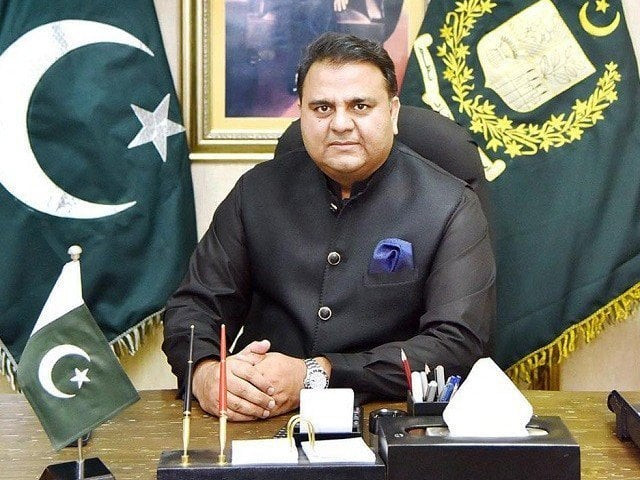Strengthening science and technology
Govt should fully focus on promotion of science and technology as it is the most potent tool for poverty alleviation

Fawad Chaudhry. PHOTO: FILE
Meanwhile, Prime Minister Imran Khan while inaugurating a University dedicated to Science and Technology declared that the university would also undertake in-depth research on Sufism for which the government would also provide it with a subsidy. This decision has come under severe criticism and rightly so. The PM’s idea of promoting science and simultaneously equipping the younger generation with the spirit of Sufism is confusing and contradictory, to put it mildly. The one is the antithesis of the other. However well-meaning PM’s intentions may be, he needs to exercise caution when delving into an unknown territory. Certainly, promoting research on Sufism would be a great idea as it has deep roots in the subcontinent but should not be bracketed and promoted along with science. The two should be kept separate.
Our leaders are yet to realise that science and technology are the life-blood of modern nations. It is the foundation on the basis of which the Western civilsation has built its edifice. Japan and Germany’s ranking as the third and fourth largest economies respectively are largely due to their strong scientific and technological base. The same is true of the Scandinavian countries that despite small populations have strong economies. China, South Korea and now India have geared their economic engines on the foundation based on science and technology.
The United States world leadership, economic dominance and military power owe largely to its solid scientific and technological superiority. It has tried to jealously guard this lead although Japan, Germany and lately China pose a threat to its monopoly in many critical areas. It is the American universities and research centres that are primarily engaged in exploring new frontiers of scientific knowledge. The United States has also lured the best talent of the world by offering brilliant students from different countries opportunities of attractive jobs and handsome salaries. The dilemma of many talented foreign-educated Pakistani scientists is that they do not find jobs in universities, industry and research institutions compatible with their educational background. For them, migration to developing countries is generally a preferred option.
In the last three decades, China benefited enormously from its students studying in American and Western universities. Although it is equally true that large presence of Chinese students benefited these universities through their solid hard work and better academic performance especially in science subjects and mathematics. Moreover, their contribution and of other foreign students did incentivise universities in achieving overall higher standards. Presence of foreign students in significant numbers has contributed toward improving the financial condition of these institutions.
Provincial ministries of education in Pakistan with support from the federal government will need to make a deliberate effort spread over years to widen and improve the quality of teaching of science in schools and colleges. Most of our institutions due to poor funding coupled with indifference of teaching staff have paid little attention to science laboratories that are a prerequisite for understanding the subject.
Building a strong infrastructure in our educational institutions to promote science apart from attitudinal change of our leadership would require a concrete plan of action spread over years in multiple scientific disciplines. Advancement of science and technology would depend on the quality and number of science-oriented educational institutions with an adequate back-up in the form of laboratories and workshops. With a few exceptions, the state of labs in our colleges and universities is far from satisfactory and need major upgrade.
Pakistan’s economic problems, apart from being a victim of several shortcomings, are due to lack of a sound scientific and technological base. This is reflected in every major area of activity — be it agriculture, industry, infrastructure or exports. Productivity in all these areas in Pakistan is the lowest among South Asian nations.
The government should fully focus on promotion of science and technology as it is the most potent tool for poverty alleviation. Moreover, we have to align and integrate our science and technology policy with our national policy as most of the fast-developing countries have done. ‘
We have not utilised our diaspora for promotion of science and technology in an organised and consistent manner as India and East Asian countries have done. This is a great asset that the government and universities need to benefit from.
The quality and standard of science teaching in our schools and colleges is far from satisfactory and there is seldom any concern or attention being given to it. The few talented students who through their personal efforts score good grades generally find admission to foreign universities and rarely return home. This is primarily due to lack of recognition of talented scientists and engineers and limited job opportunities. All this has to change for building a ‘Naya Pakistan’.
Published in The Express Tribune, May 15th, 2019.
Like Opinion & Editorial on Facebook, follow @ETOpEd on Twitter to receive all updates on all our daily pieces.















COMMENTS
Comments are moderated and generally will be posted if they are on-topic and not abusive.
For more information, please see our Comments FAQ